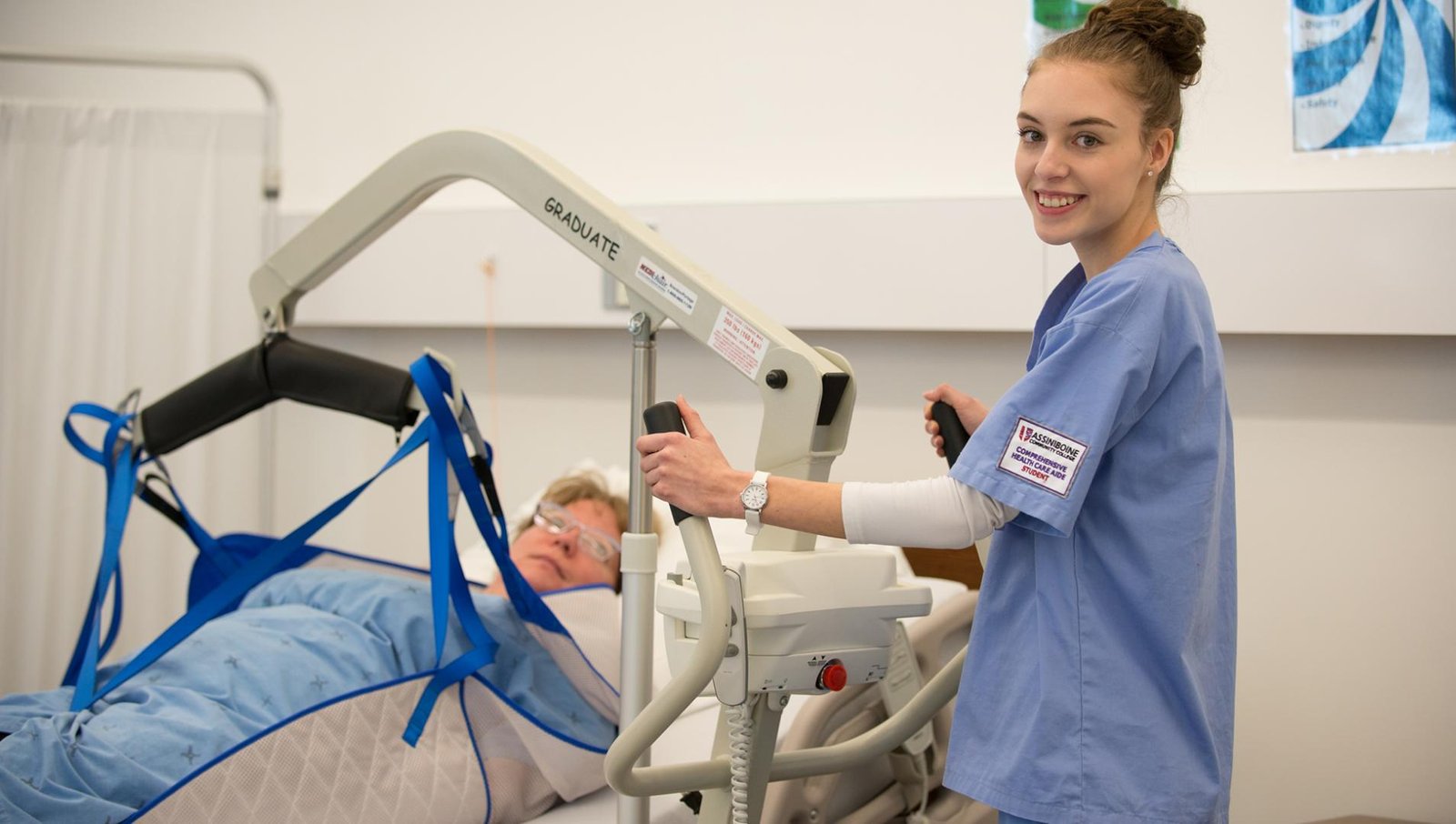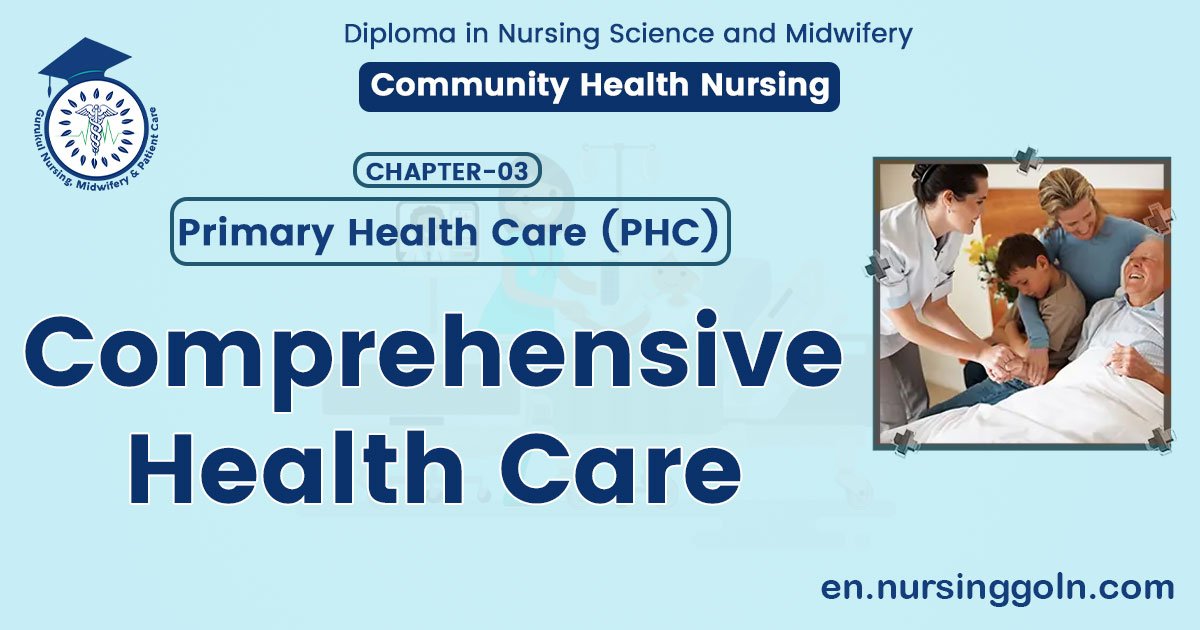Comprehensive health care- This book covers the entire syllabus of “Community Health Nursing” prescribed by the Universities of Bangladesh- for Basic and diploma nursing students. We tried to accommodate latest information and topics.
This book is examination friendly setup according to the teachers’ lectures and examination’s questions. At the end of the book previous university questions are given. We hope in touch with the book students’ knowledge will be upgraded and flourished. The unique way of presentation may make your reading of the book a pleasurable experience.
Comprehensive health care

Definition of Comprehensive Health Care
Comprehensive health care may be defined as the provision of integrated preventive, curative and promotional health services from “womb to tomb” to every individual residing in a defined Geographic area.
Criteria, Objective, and Requirements of comprehensive health care (PHC):
Criteria of comprehensive health care:
➤ Provide adequate preventive, curative and promotive health services.
➤ Be as close to the beneficiaries as possible.
➤ Has the widest cooperation between the people, the service and the profession.
➤ Available to all irrespective of their ability to pay.
➤ Look after specifically the vulnerable and weaker sections of the community.
➤ Create and maintain a healthy environment both in homes as well as working places.

1 . Objective of comprehensive healthcare:
➤ Reduction of premature death.
➤ Reduction of disease.
➤ Reduction of disability.
➤ Reduction of discomfort.
➤ Reduction of delinquency.
➤ Reduction of disruption.
2. Requirement of Comprehensive healthcare:
➤ Maximum utilization of all available skills, in order to ensure the most economic provision of health services.
➤ Cooperation and active involvement of the community with the staff of medical
institutions providing the services.
➤ A change in traditional pattern of loving and availability of basic sanitary amenities.
➤ The available doctors should be concerned not only with the illness of the individual but also with the factors, which govern the wellbeing of the whole community.
➤ Awareness and acceptance of modern concepts in health and sickness.
Alma-Ata Declaration
World Health Organization (WHO) called to return to the Declaration of Alma-Ata :
Alma-Ata:
The Alma-Ata Declaration has called on all governments to formulate national policies, strategies and plans of action to launch and sustain PHC as part of a national health system. It is left to each country to innovate, according to its own circumstances to provide primary health care. The national PHC network in Bangladesh has developed on the basis of the policy of the government to provide health care to all the unserved and underserved populations, 90% of whom live in the rural areas (Reza, 2003).
Or
The Alma-Ata Declaration of 1978 emerged as a major milestone of the twentieth century in the field of public health, and it identified primary health care as the key to the attainment of the goal of “Health for All”.
Or
The Declaration of Alma-Ata was adopted at the International Conference on Primary Health Care (PHC), Almaty (formerly Alma-Ata), Kazakhstan (formerly Kazakh Soviet Socialist Republic), 6-12 September 1978.It expressed the need for urgent action by all governments, all health and development workers, and the world community to protect and promote the health of all people. It was the first international declaration underlining the importance of primary health care. The primary health care approach has since then been accepted by member countries of the World Health Organization (WHO) as the key to achieving the goal of “Health For All” but only in developing countries at first. This applied to all other countries five years later.
The Declaration of Alma-Ata (6) stated that primary health care includes at least:
- education about prevailing health problems and I methods of preventing and controlling them;
- promotion of food supply and proper nutrition;
- an adequate supply of safe water and basic sanitation;
- maternal and child health care, including family planning;
- immunization against infectious diseases;
- prevention and control of endemic diseases;
- appropriate treatment of common diseases injuries; and,
- Provision of essential drugs.

The following are excerpts from the Declaration:
➤ The Conference strongly reaffirms that health, which is a state of complete physical, mental, and social well-being, and not merely the absence of disease or infirmity, is a fundamental human right and that the attainment of the highest possible level of health is a most important world-wide social goal whose realization requires the action of many other social and economic sectors in addition to the health sector.
➤The existing gross inequality in the health status of the people, particularly between developed and developing countries as well as within countries, is politically, socially, and economically unacceptable and is, therefore, of common concern to all countries.
➤ The people have a right and duty to participate individually and collectively in the planning and implementation of their health care.
➤ Primary health care is essential health care based on practical, scientifically sound, and socially acceptable methods and technology made universally accessible to individuals and families in the community through their full participation and at a cost that the community and country can afford to maintain at every stage of their development in the spirit of self-reliance and self-determination.
➤ An acceptable level of health for all the people of the world by the year 2000 can be attained through a fuller and better use of the world’s resources, a considerable part of which is now spent on armaments and military conflicts.
➤ A genuine policy of independence, peace, détente, and disarmament could and should release additional resources that could well be devoted to peaceful aims and in particular to the acceleration of social and economic development of which primary health care, as an essential part, should be allotted its proper share.
